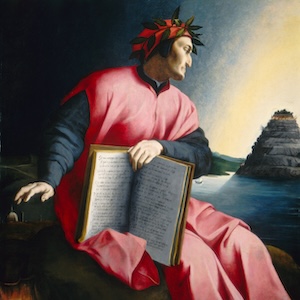The Divine Comedy (Hell) through Aristotelian ethics and Thomistic ontology

Accepted: September 2, 2024
HTML: 4
All claims expressed in this article are solely those of the authors and do not necessarily represent those of their affiliated organizations, or those of the publisher, the editors and the reviewers. Any product that may be evaluated in this article or claim that may be made by its manufacturer is not guaranteed or endorsed by the publisher.
The first part of the Divine Comedy, the Inferno, should be interpreted through the prism of the Aristotelian conception of virtue. Against all expectations, Dante did not base his work on virtue as defined by Catholic morality, which makes his work seem less guided by established principles, even if the ontological essence of the text reflects the Thomistic structure. This is not without consequence. The characters of the Inferno are not approached from the angle of absolute morality, but rather through the accounts of their concrete lives, which Dante narrates and analyses in depth. In this way, he can position himself uniquely in relation to these figures, expressing his own personal feelings. The poet has a deep respect for those who had a direct or indirect influence on his life (such as Virgil, Brunetto Latini and the fictional character of Ulysses), even if they are among the damned. He sees them not in absolute terms, but relatively, considering their humanity, which, like all humanity, is imperfect and fallible. From this perspective, the term “transhumar”, one of the main vectors of the spiritual habitus in the Comedy, can be seen as an equivalent of the Greek term “eudaimonia”, which designates the supreme good or its quest. This is precisely what the poet aspires to, and what his most beloved characters cling to, whom he saves from eternal damnation by means of Aristotle’s moral teaching. That’s why the play is called “Comedy”. It is, after all, a story with a happy ending. And how could it be otherwise, when Dante, and those he holds in high esteem in the Inferno, aspire to maximum personal fulfilment in the light of “the love that moves the Sun and the other stars”? In the end, the “lectura aristotelica” proves to be a great help in grasping the dialectic of the poem.
How to Cite

This work is licensed under a Creative Commons Attribution-NonCommercial 4.0 International License.
Copyright (c) 2024 The Author(s)
PAGEPress has chosen to apply the Creative Commons Attribution NonCommercial 4.0 International License (CC BY-NC 4.0) to all manuscripts to be published.

 https://doi.org/10.4081/peasa.35
https://doi.org/10.4081/peasa.35



